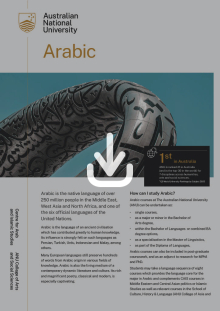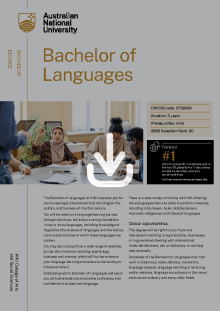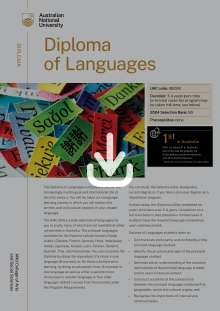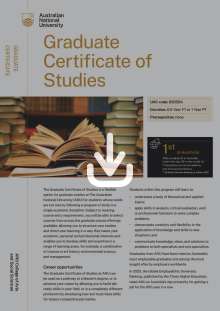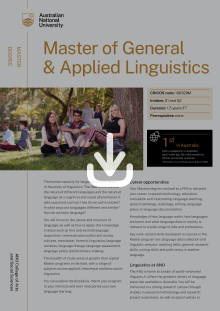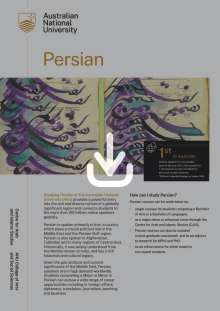
Languages and Linguistics
Studying languages and linguistics offers a window into the cultural foundations of society and the nature of humanity itself. Languages reflect history and social values. They enable us to forge relationships and to carry out both mundane and complex tasks. The ANU is recognised nationally and internationally as a leading institute for teaching and research in languages and cultures. With over 25 languages on offer, we teach more languages than any other university in Australia. Our staff includes researchers at the cutting edge of a diverse range of areas related to language study. Research conducted at the ANU brings the latest developments in second language acquisition and language teaching pedagogy directly to the learning environment. As a language student at ANU, you can start at a level appropriate for your proficiency, from beginning to more advanced levels.
Languages and and Linguistics at the ANU encompasses languages within the modern European diaspora (French, German, Italian, Russian, Spanish, Portuguese); Ancient Greek and Latin; Gamilaraay, an Australian Indigenous language; Middle Eastern languages (Arabic, Persian, Turkish), and a range of languages across Asia and the Pacific, including Burmese, Cantonese, Hindi, Indonesian, Japanese, Korean, Chinese Mandarin, Literary Chinese, Mongolian, Sanskrit, Taiwanese, Tetum, Thai, Tok Pisin, Tibetan and Vietnamese.
Linguistics is the study of human language: how we use languages to communicate, how languages vary and change over time, how meanings are expressed, how children and adults acquire language, how communication differs across communities, and much more. ANU has strengths in a range of areas including applied linguistics, forensic linguistics, sociolinguistics, phonetics, semantics, language contact, and language documentation and description. Our staff undertake linguistic research on diverse language varieties from all over the world, including many Indigenous Australian languages and languages of the Asia-Pacific region. ANU Linguistics consistently places among top institutions in international ranking (e.g., as #1 in Australia and #22 in the world in the 2021 QS rankings). Our research underpins a vibrant undergraduate teaching program, fosters a thriving community of graduate students, and is supported by leading research centres:
The ARC Centre of Excellence for the Dynamics of Language investigates how languages vary, how we learn them, how we process them and how they evolve. The centre is home for the language-focused, cross-disciplinary work of linguists, anthropologists, philosophers, biologists and psychologists.
The Institute for Communication in Health Care works to translate cutting edge communication research into best practice and training for safe and compassionate healthcare.
The Australian National Dictionary Centre (jointly funded by The Australian National University and Oxford University Press Australia) conducts research into Australian English, and provides Oxford University Press with editorial expertise for their Australian dictionaries.
Check the School of Literature, Languages and Linguistics website for more information on the faculty, research, projects, latest news, upcoming events and more.
*QS World University Rankings by Subject 2025
^Times Higher Education - Global University Employability Ranking 2025
Key facts
4 in Australia
57 for Linguistics in World*
#1 in Australia for graduate employability^
Degree programs
Key facts
2 in Australia
32 for Arts and Humanities in World*
#1 in Australia for graduate employability^
Key facts
#1 in Australia for graduate employability^
Key facts
#1 in Australia for graduate employability^
Key facts
4 in Australia
57 for Linguistics in World*
#1 in Australia for graduate employability^
Key facts
#1 in Australia for graduate employability^
Key facts
4 in Australia
57 for Linguistics in World*
#1 in Australia for graduate employability^
Key facts
#1 in Australia for graduate employability^
Hear from our students
My brilliant career
Watch the video
View discipline flyers
Learn more

Check our series of videos about degree programs, majors and disciplines, and research strengths for your enjoyment.












